In Wikipedia
The McDonnell Douglas DC-10 is an American tri-jet wide-body airliner manufactured by McDonnell Douglas. The DC-10 was intended to succeed the DC-8 for long-range flights. It first flew on August 29, 1970; it was introduced on August 5, 1971, by American Airlines
Role
Wide-body airliner
National origin
United States
Manufacturer
McDonnell Douglas
First flight
August 29, 1970; 50 years ago
Introduction
August 5, 1971 with American Airlines
Status
In cargo service
Primary users
FedEx Express
10 Tanker Air Carrier
TAB Cargo
Orbis International
Produced
1968–1988
Number built
DC-10: 386[1]
KC-10: 60[1]
Variants
McDonnell Douglas KC-10 Extender
DC-10 Air Tanker
Developed into
McDonnell Douglas MD-11
The trijet has two turbofans on underwing pylons and a third one at the base of the vertical stabilizer. The twin-aisle layout has a typical seating for 270 in two classes. The initial DC-10-10 had a 3,500 nmi (6,500 km) range for transcontinental flights. The DC-10-15 had more powerful engines for hot and high airports. The DC-10-30 and -40 models (with a third main landing gear leg to support higher weights) each had intercontinental ranges of up to 5,200 nmi (9,600 km). The KC-10 Extender (based on the DC-10-30) is a U.S. Air Force tanker.
A design flaw in the cargo doors caused a poor safety record in early operations. Following the American Airlines Flight 191 crash (the deadliest US aviation accident), the US Federal Aviation Administration (FAA) grounded all U.S. DC-10s in June 1979. In August 1983, McDonnell Douglas announced that production would end due to a lack of orders, as it had a widespread public apprehension after the 1979 crash and a poor fuel economy reputation.[2] Design flaws were rectified and fleet hours increased, for a safety record later comparable to similar era passenger jets.
Production ended in 1989, with 386 delivered to airlines along with 60 KC-10 tanker aircraft. The DC-10 outsold the similar Lockheed L-1011 TriStar. It was succeeded by the lengthened, heavier McDonnell Douglas MD-11. After merging with McDonnell Douglas in 1997, Boeing upgraded many in-service DC-10s as the MD-10 with a glass cockpit to eliminate the flight engineer position. In February 2014, the DC-10 made its last commercial passenger flight. Cargo airlines continue to operate it as a freighter, its largest operator is FedEx Express. The Orbis Flying Eye Hospital is a DC-10 adapted for eye surgery. A few DC-10s have been converted for aerial firefighting use. Some DC-10s are on display, while other retired aircraft are in storage.
Control
:Activate 2 to Brake
:VTOL Flaps
:Pushback Activate 3
Please Give Me Upvotes That Fly Better
Enjoy:)
Specifications
Spotlights
- MrGreen 3.9 years ago
General Characteristics
- Successors 2 airplane(s)
- Created On Android
- Wingspan 104.2ft (31.8m)
- Length 118.8ft (36.2m)
- Height 38.5ft (11.7m)
- Empty Weight 70,404lbs (31,934kg)
- Loaded Weight 87,914lbs (39,877kg)
Performance
- Power/Weight Ratio 3.067
- Wing Loading 37.3lbs/ft2 (181.9kg/m2)
- Wing Area 2,360.0ft2 (219.2m2)
- Drag Points 42268
Parts
- Number of Parts 162
- Control Surfaces 5
- Performance Cost 1,117

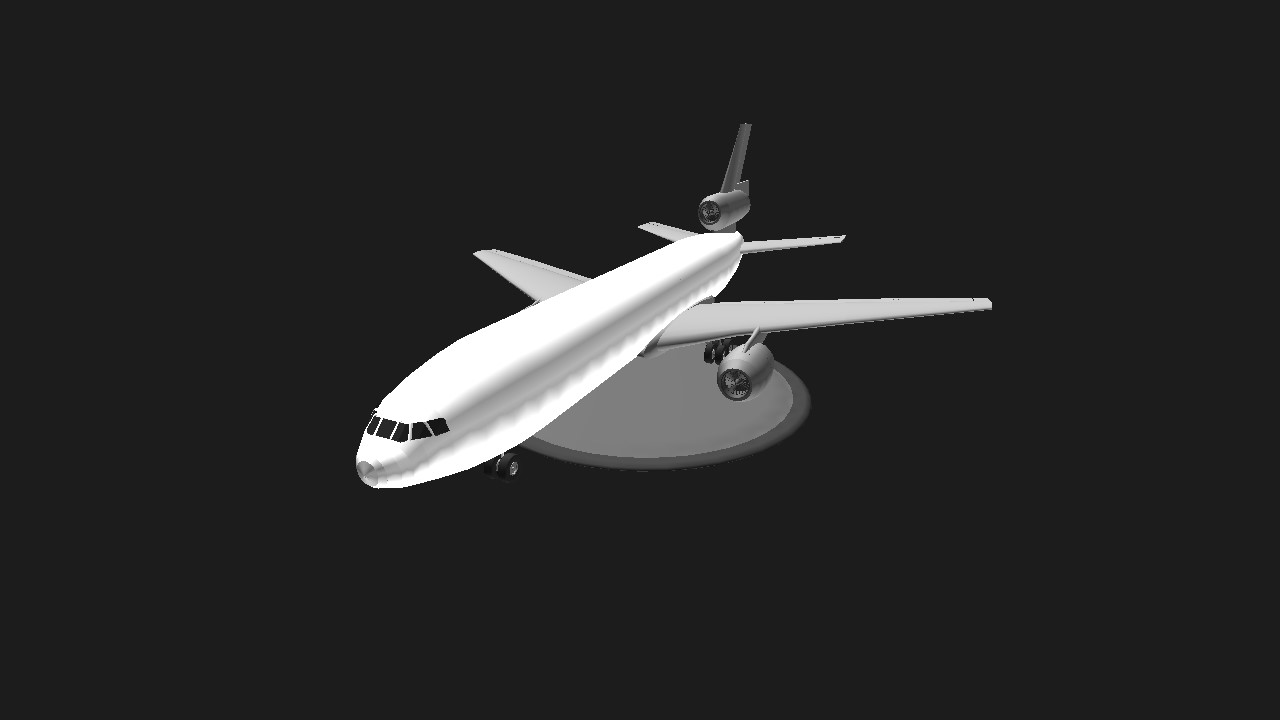
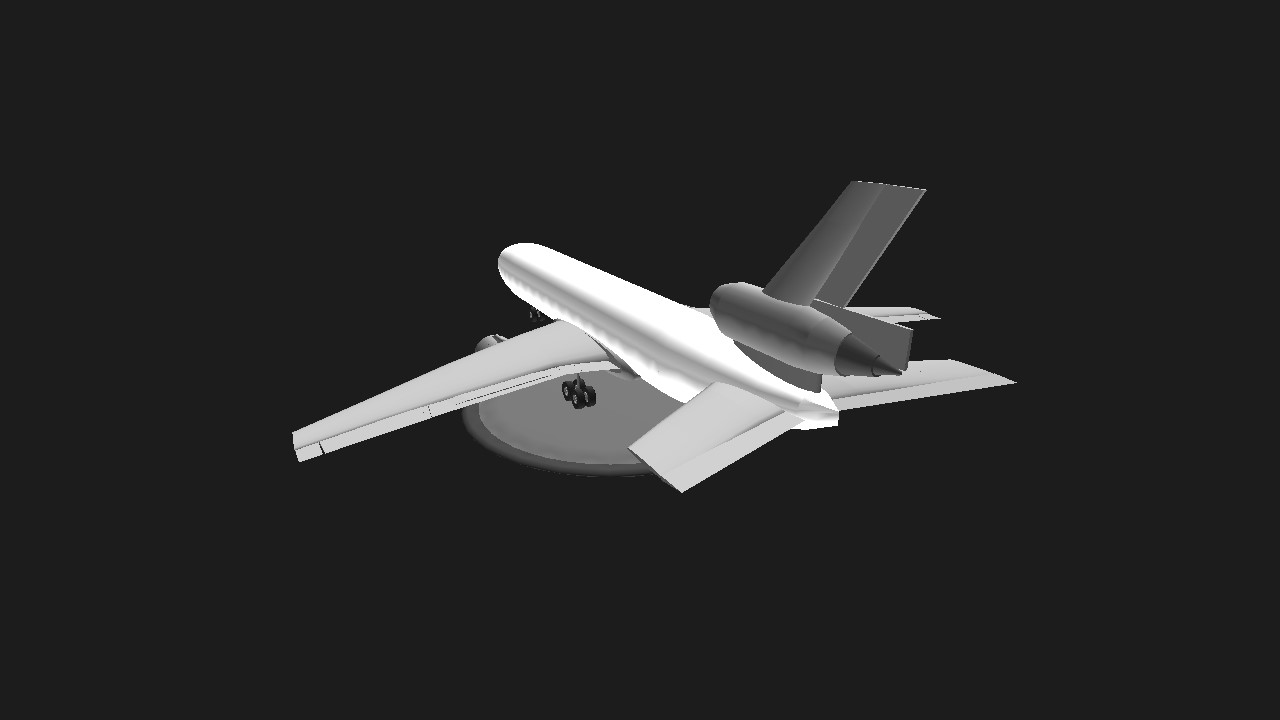
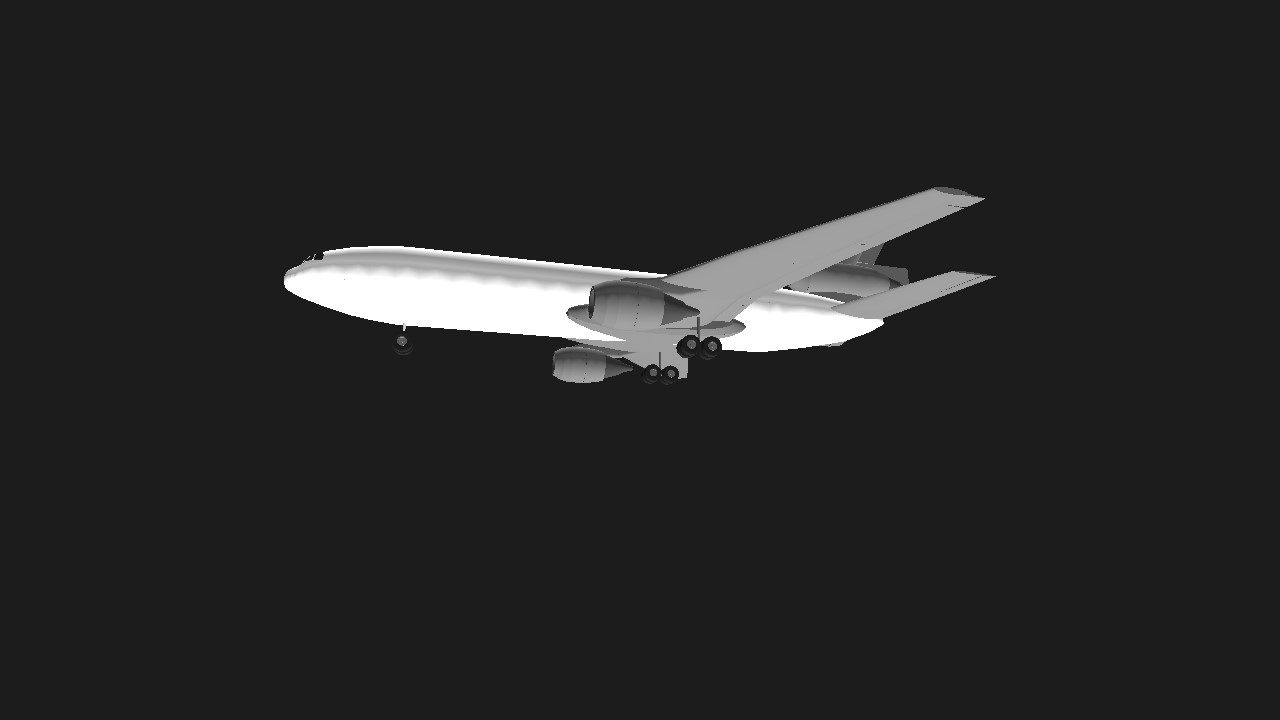
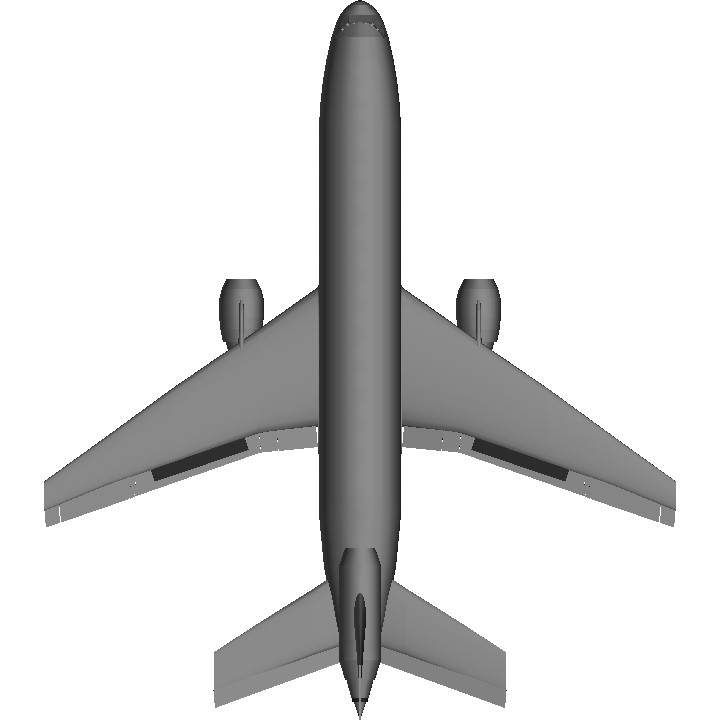
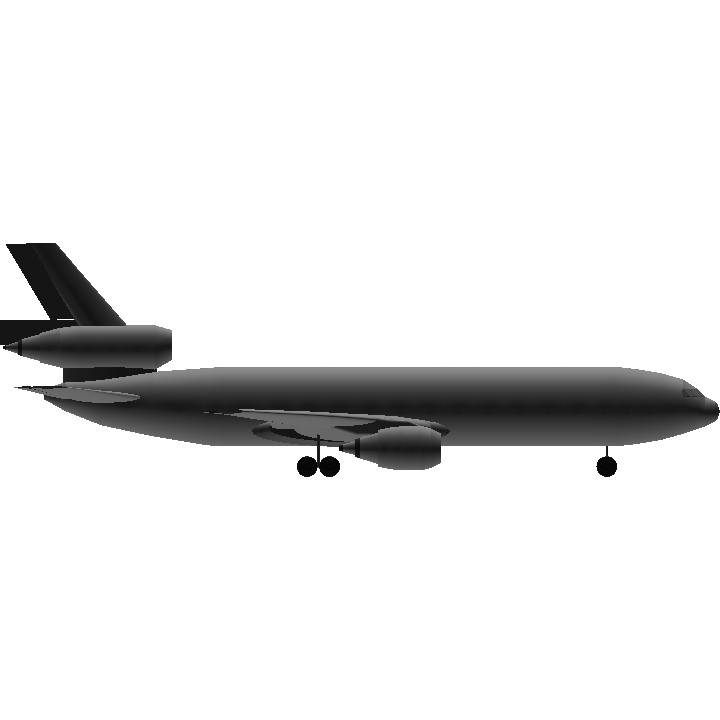
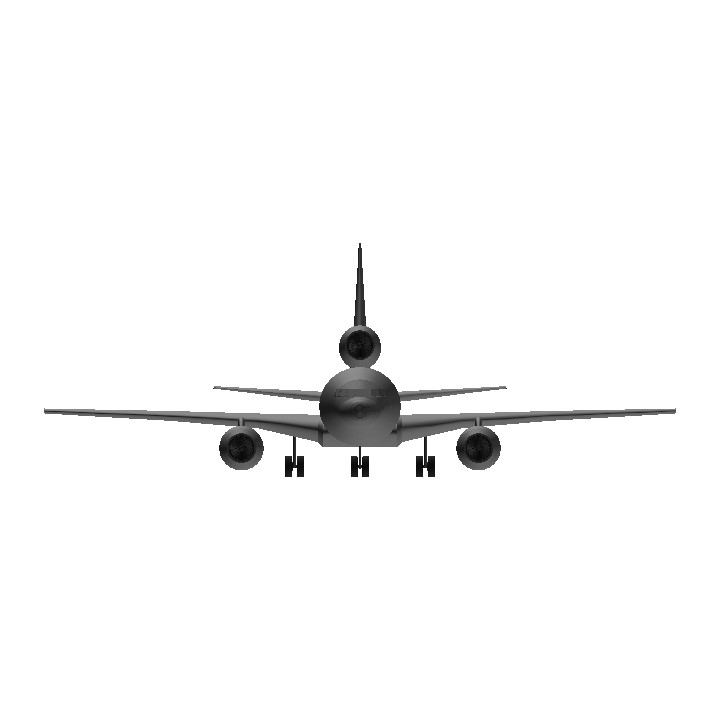
@Pane emang?
@Cereal ok btw gausah panik kek gitu gw cuma nanya aja
Itu sayap ama ekornya lu bikin sendiri atau pake punya orang? soalnya keliatan kek si @AnIndonesianGuy punya